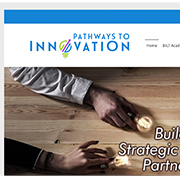
Building Pathways to Innovation in Skilled Technical Workforce Education Through Strategic Employer Engagement
www.pathwaystoinnovation.org
This project serves the national interest in a strong American workforce by ensuring that more college technical education programs align with the current and emerging needs of business and industry. In May 2020, the American Workforce Policy Advisory Board published a call-to-action challenging key stakeholders in the U.S. economy to "engage in a shared, coordinated, and sustained effort to build a resilient and agile workforce of the future powered by skilled American workers." Investing in American Workers to Expedite Economic Recovery issued three goals: 1) Expedite American workers' return to employment and upward mobility by investing in career pathways and implementing skills-based hiring practices; 2) Remove obstacles to the modernization of American education and training to accelerate reskilling and facilitate innovation in workforce development; and 3) Build the technological infrastructure necessary for the future of work. These goals closely align with current efforts of the National Science Board, the National Science Foundation, and the NSF's Advanced Technological Education (ATE) program to grow the STEM-capable U.S. workforce through skilled technical workforce programs tailored to the needs of local communities. To support workforce development, this project addresses the essential need to strengthen and expand partnerships between business/industry and community colleges that prepare the skilled technical workforce through career pathways programs. By fostering public-private partnerships in technical education, the project promotes making high-wage, high-skilled job opportunities available to many people who have not previously had access to these positions. Local and regional business and industry will benefit because their pipeline of qualified candidates for open positions will be expanded. Finally, participating colleges, their faculty, and future students in existing and emerging technical disciplines will benefit from initiating work on a culture of innovation co-led by business and industry.







